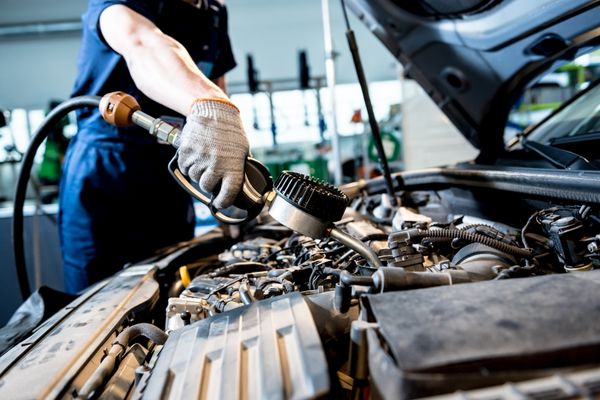Houston’s sprawling highways and busy streets create a unique driving environment where certain traffic violations happen more frequently than others. Understanding these common infractions can help drivers stay safer, avoid costly tickets, and keep their driving records clean. Whether you’re new to the city or have been driving Houston’s roads for years, knowing what law enforcement watches for most closely can make a real difference in your daily commute.
Speeding: The Most Universal Violation
Speeding tops the list of traffic violations across Houston and throughout Texas. The city’s extensive freeway system, with speed limits ranging from 60 to 80 mph, creates plenty of opportunities for drivers to exceed posted limits. What catches many drivers off guard is how quickly speeds can climb on Houston’s wide, straight highways.
Construction zones present particular challenges for speeding violations. Houston seems to have perpetual road work happening somewhere, and these areas often feature reduced speed limits that many drivers fail to notice or follow. The penalties for speeding in construction zones are typically doubled, making these violations especially expensive.
School zones create another common speeding trap. With reduced speed limits during specific hours, drivers who aren’t paying attention to the time or posted signs can easily find themselves with a ticket. The timing of these zones varies, but most are active during morning and afternoon hours when children are arriving or leaving school.
Red Light and Stop Sign Violations
Houston’s intersections see thousands of red light violations each year. The city’s notorious traffic congestion sometimes leads to impatient drivers who push through yellow lights that turn red before they clear the intersection. Red light cameras at many major intersections have made these violations more expensive and easier to enforce.
Rolling stops at stop signs represent another frequent violation. Many drivers slow down at stop signs without coming to a complete stop, especially in residential areas where traffic seems light. However, law enforcement often monitors these areas, particularly during school hours when children might be walking to school.
The “right on red” rule creates confusion for some drivers. While Texas allows right turns on red after a complete stop, some intersections prohibit this maneuver. Drivers who don’t notice the “No Right Turn on Red” signs can find themselves with unexpected violations.
Following Too Closely
Tailgating violations happen frequently on Houston’s busy highways. The combination of heavy traffic and aggressive driving habits leads many drivers to follow much closer than the safe following distance. Texas law requires drivers to maintain a safe following distance, though the exact distance isn’t specified in feet or car lengths.
The “three-second rule” provides a good guideline for safe following distances. However, during rush hour traffic, maintaining this distance can be challenging when other drivers constantly merge into any available space. Despite the difficulty, law enforcement can still cite drivers for following too closely, especially if it contributes to an accident.
Improper Lane Changes
Houston’s complex highway system with multiple lanes and frequent merging points creates many opportunities for improper lane change violations. Failing to signal before changing lanes represents one of the most common infractions. Many drivers either forget to signal or don’t signal long enough before making their move.
Cutting across multiple lanes at once is another frequent violation. This often happens when drivers realize they need to exit and don’t have much time to get into the proper lane. The temptation to quickly cut across traffic can result in both violations and accidents.
Improper passing, particularly on the right side when it’s not legal, also falls into this category. Understanding when and where passing is allowed helps drivers avoid these violations.
Distracted Driving
Texas has laws prohibiting texting while driving, and Houston police actively enforce these regulations. The definition of distracted driving has expanded beyond just texting to include various activities that take attention away from driving. Eating, adjusting GPS devices, or even animated conversations with passengers can potentially result in violations if they contribute to unsafe driving.
Hands-free devices are generally allowed, but drivers can still be cited if their phone use affects their driving ability. The key is maintaining full attention on the road, regardless of what technology is available.
Seat Belt Violations
Texas requires all front-seat passengers to wear seat belts, and children under certain ages must be in appropriate car seats or booster seats. While seat belt violations might seem minor, they can result in fines and points on driving records. More importantly, these violations often get discovered during traffic stops for other reasons, potentially making a simple speeding ticket more expensive.
The child passenger safety laws are particularly strict and complex. The requirements change based on the child’s age, weight, and height, and parents need to stay current with these regulations to avoid violations.
Driving Without Proper Documentation
Having proper documentation while driving is essential for avoiding certain violations. This includes having a valid driver’s license, current vehicle registration, and proof of insurance available when requested by law enforcement.
Texas maintains strict vehicle coverage requirements, and operating without proper protection can lead to significant legal and financial consequences. Given Houston’s complex traffic patterns and severe weather risks, securing adequate coverage becomes a priority for every driver. Residents can explore comprehensive houston car insurance solutions and compare rates from multiple providers to ensure they meet state requirements while staying within budget.
DUI and DWI Violations
Driving under the influence remains one of the most serious traffic violations, with consequences that extend far beyond fines. Houston police conduct regular sobriety checkpoints and actively patrol for signs of impaired driving. The legal limit for blood alcohol content is 0.08%, but drivers can be cited for impairment even below this level.
The penalties for DUI violations include license suspension, fines, and potential jail time. These violations also significantly impact insurance rates and can affect employment opportunities. Understanding the risks and planning alternative transportation when drinking helps drivers avoid these serious violations.
Equipment Violations
Vehicle equipment violations might seem minor, but they can result in tickets and safety hazards. Broken headlights, taillights, or turn signals create visibility problems and frequently result in citations. Expired inspection stickers or license plate issues also fall into this category.
Window tinting violations are surprisingly common in Houston. Texas has specific laws about how dark window tint can be, and exceeding these limits can result in tickets. Many drivers don’t realize their tint is too dark until they’re pulled over for another reason.
Understanding the Consequences
Traffic violations in Houston can result in fines, points on driving records, and increased insurance rates. Some violations require court appearances, while others can be resolved by paying fines. Understanding the potential consequences helps drivers make better decisions about their driving habits.
Points on driving records can accumulate quickly, and too many points can result in license suspension. Even minor violations can have long-term effects on insurance rates and driving privileges. The Texas Department of Public Safety maintains records of all violations, and these records are available to insurance companies and potential employers.
Prevention Strategies
Avoiding traffic violations requires conscious effort and attention to driving habits. Staying aware of speed limits, especially in construction and school zones, helps prevent speeding tickets. Maintaining safe following distances and using turn signals consistently reduces the risk of other common violations.
Regular vehicle maintenance ensures that equipment violations don’t catch drivers off guard. Checking lights, updating registration, and maintaining current insurance documentation should be routine parts of vehicle ownership.
Houston’s traffic environment challenges even experienced drivers, but understanding common violations and their consequences helps everyone stay safer on the road. These violations aren’t just about avoiding tickets – they’re about creating safer driving conditions for everyone who shares Houston’s busy streets and highways. The habits that help drivers avoid violations are the same ones that prevent accidents and keep traffic flowing smoothly throughout the city.



